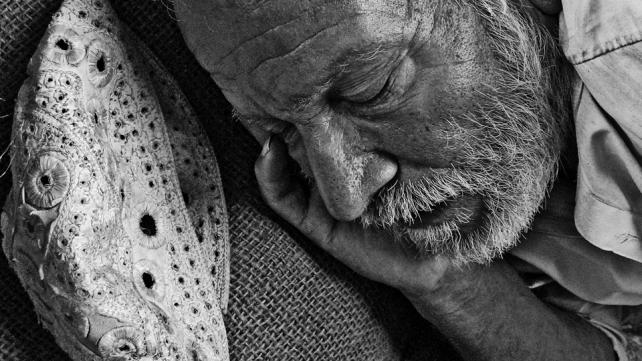The spiritual and health benefits of Ramadan fasting

At the onset of Ramadan Muslims all over the world start fasting from dawn to dusk daily for 30 days as ordained in Quran.
"O you who believe fasting is prescribed to you as it was prescribed to those before you so that you can learn Taqwa" (Quran 2:183)
The Arabic word Taqwa is translated in many ways including God consciousness, God fearing, piety, and self restraining. Thus we are asked to fast daily for one month from dawn to dusk and avoid food, water, sex and vulgar talk during that period.
But why do we need to fast? It is our experience that temptations and ways of the world tend to spoil our purity and austerity. Thus we indulge in food all of the time, snacking and nibbling the whole day, heading to obesity. We drink too much coffee, or tea, or carbonated drinks. Some sexaholics can not stay away from sex unless they do it at least once or more a day. When we argue, we leave our decency aside and resort to vulgar talk and even physical fighting.
Now when one is fasting, he or she cannot do all of that. When he looks at the mouth watering food, he cannot even taste it and he has to give up snacking and nibbling as well as smoking cigarettes if he does. No constant coffee, tea or Coke drinking either. Sexual passions have to be curtailed and when he is provoked to fight, he says " I am fasting that I cannot respond to your provocation". To achieve God consciousness or God nearness, a better word, we are advised to do additional prayer and read the Quran.
Medical benefits of Ramadan
Muslims do not fast because of medical benefits which are of a secondary nature. Fasting has been used by patients for weight management, to rest the digestive tract and for lowering lipids. There are many adverse effects of total fasting as well as of crash diets. Islamic fasting is different from such diet plans because in Ramadan fasting, there is no malnutrition or inadequate calorie intake. The calorie intake of Muslims during Ramadan is at or slightly below the nutritional requirement guidelines. In addition, the fasting in Ramadan is voluntarily taken and is not a prescribed imposition from the physician.
Ramadan is a month of self-regulation and self training, with the hope that this training will last beyond the end of Ramadan. If the lessons learned during Ramadan, whether in terms of dietary intake or righteousness, are carried on after Ramadan, there effects will be long lasting. Moreover, the type of food taken during Ramadan does not have any selective criteria of crash diets such as those which are protein only or fruit only type diets. Everything that is permissible is taken in moderate quantities.
The difference between Ramadan and total fasting is the timing of the food; during Ramadan, we basically miss lunch and take an early breakfast and do not eat until dusk. Abstinence from water for 8 to 10 hours is not necessarily bad for health and in fact, it causes concentration of all fluids within the body, producing slight dehydration. The body has its own water conservation mechanism; in fact, it has been shown that slight dehydration and water conservation, at least in plant life, improve their longevity.
The physiological effect of fasting includes lowering of blood sugar, lowering of cholesterol and lowering of the systolic blood pressure. In fact, Ramadan fasting would be an ideal recommendation for the treatment of mild to moderate, stable, non-insulin diabetes, obesity, and essential hypertension. In 1994 the first International Congress on "Health and Ramadan", held in Casablanca, entered 50 extensive studies on the medical ethics of fasting. While improvement in many medical conditions was noted; however, in no way did fasting worsen any patients' health or their baseline medical condition. On the other hand, patients who are suffering from sever diseases, whether type I diabetes or coronary artery disease, kidney stones, etc., are exempt from fasting and should not be allowed to fast.
There are psychological effects of fasting as well. There is a peace and tranquility for those who fast during the month of Ramadan. Personal hostility is at a minimum, and the crime rate decreases. Muslims take advice from the Prophet who said, "If one slanders you or aggresses against you, say I am fasting."
This psychological improvement could be related to better stabilization of blood glucose during fasting as hypoglycemia after eating, aggravates behavior changes. There is a beneficial effect of extra prayer at night. This not only helps with better utilization of food but also helps in energy output. There are 10 extra calories output for each unit of the prayer. Again, we do not do prayers for exercise, but a mild movement of the joints with extra calorie utilization is a better form of exercise. Similarly, recitation of the Quran not only produces a tranquility of heart and mind, but improves the memory.
One of the odd nights in the last 10 days of Ramadan is called the night of power when angels descend down, and take the prayer of worship to God for acceptance.
Fasting is a special act of worship which is only between humans and God since no one else knows for sure if this person is actually fasting. Thus God says in a hadith qudsi that "Fasting is for Me and I only will reward it". In another hadith, the Prophet Mohammad (peace be upon him) has said "If one does not give up falsehoods in words and actions, God has no need of him giving up food and drink".
It was really good to know that there is too much benefits of FASTING
ReplyDelete